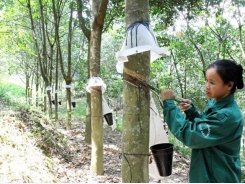Advancing agricultural products - Not the story of agriculture sector only

Dr. Ngo Xuan Nam, deputy director of the SPS Vietnam Office, urged authorities, social organizations, and industrial groups to participate in promoting exports.
On November 26, the Hanoi Department of Agriculture and Rural Development co-hosted a conference with the Vietnam Sanitary and Phytosanitary Notification Authority and Enquiry Point on information sharing, compliance with food safety regulations, and quarantine of animals and plants when exporting under the EVFTA and RCEP Agreements.
Mr. Nguyen Ngoc Son, deputy director of the Hanoi Department of Agriculture and Rural Development, said in his opening remarks that Europe is a prospective market and thus demands high standards of quality, chemical residues, and traceability.
"Globally, market regulations and standards are improving. Vietnam's agricultural industry must develop suitable strategies while also changing public perceptions and production practices "Mr. Son informed.
EVFTA and RCEP are next-generation free trade agreements (FTAs). The EVFTA, in particular, assists in diversifying and expanding market access options and export items, particularly agricultural and aquatic products, which are among Vietnam's strongest exports.
According to the Vietnam SPS Office, one of the primary benefits of the EVFTA for Vietnamese enterprises is the EU's tax obligations. When the Agreement takes effect on August 1, 2020, the EU will reduce import duties on around 85 percent of tariff lines or over 70 percent of Vietnam's exports to the EU.
After seven years of implementation of the EVFTA, the EU will reduce import taxes on about 99 percent of tax liens, which equates to roughly 100 percent of Vietnam's present export revenue.
"The level of commitment under the EVFTA framework is the greatest of its kind that Vietnam has attained in its signed free trade agreements. It's similar to a highway, where Vietnamese firms may now establish themselves. The difficulty is that we must be prepared. have the vehicle prepared, as well as the mentality necessary to drive it at top speed ", according to Dr. Ngo Xuan Nam, Deputy Director of the SPS Vietnam Office.
The EU is Vietnam's third-biggest market, accounting for between 11 and 19 percent of the country's overall import and export revenue, which is around USD 3 billion each year. Agricultural goods from Vietnam account for 2.2 percent of the EU market. Vietnam's primary exports to the European Union include coffee, fruit, cashew nuts, and pepper.
RCEP is a free trade agreement between ten ASEAN member nations and five other countries, including China, Korea, Japan, Australia, and New Zealand. As with EVFTA, RCEP benefits exporters by eliminating at least 64 percent of tariff lines when the deal takes effect.
With a population of 2.2 billion people and over 30 percent of global GDP, the RCEP establishes the world's biggest free-trade region. Vietnamese exporters will profit from the long-term stability of the market.
To ensure compliance with food safety and phytosanitary standards under the new generation of FTAs, the Vietnam SPS Office advised firms to educate themselves completely on the tax reduction roadmap, trace evaluation, product marketing, and industry reorganization according to the link chain.
Dr. Ngo Xuan Nam, while concluding the Conference, underlined two points. To beginning, there are several challenges associated with delivering comprehensive and reliable information to the business sector. He said that whoever is deciding agricultural product exports must have the information.
As the focal point for the transparency of WTO Members' regulations, the Vietnam SPS Office commits to working more closely with specialized and competent agencies in Vietnam, including the Directorate of Fisheries, the Plant Protection Department, the Department of Animal Health, the Department of Quality Management of Agriculture, Forestry, and Fisheries (MARD), and the General Department of Standards, Metrology, and Quality (Ministry of Science and Technology, Department of Quality).
Second, the current generation of FTAs' requirements includes the administration of several entities. As a result, the SPS Vietnam Office encourages the whole population to work together to enhance the quality of agricultural goods. "We need to strengthen ties since exporting a high-quality agricultural product is not a sole responsibility of the agriculture business," Mr. Nam said.
Related news
Tools

Phối trộn thức ăn chăn nuôi

Pha dung dịch thủy canh

Định mức cho tôm ăn

Phối trộn phân bón NPK

Xác định tỷ lệ tôm sống

Chuyển đổi đơn vị phân bón

Xác định công suất sục khí

Chuyển đổi đơn vị tôm

Tính diện tích nhà kính

Tính thể tích ao



 Export potential for Hai Duong carrots are expanding
Export potential for Hai Duong carrots are expanding  Vietnam’s rubber exports to India on sharp rise…
Vietnam’s rubber exports to India on sharp rise…